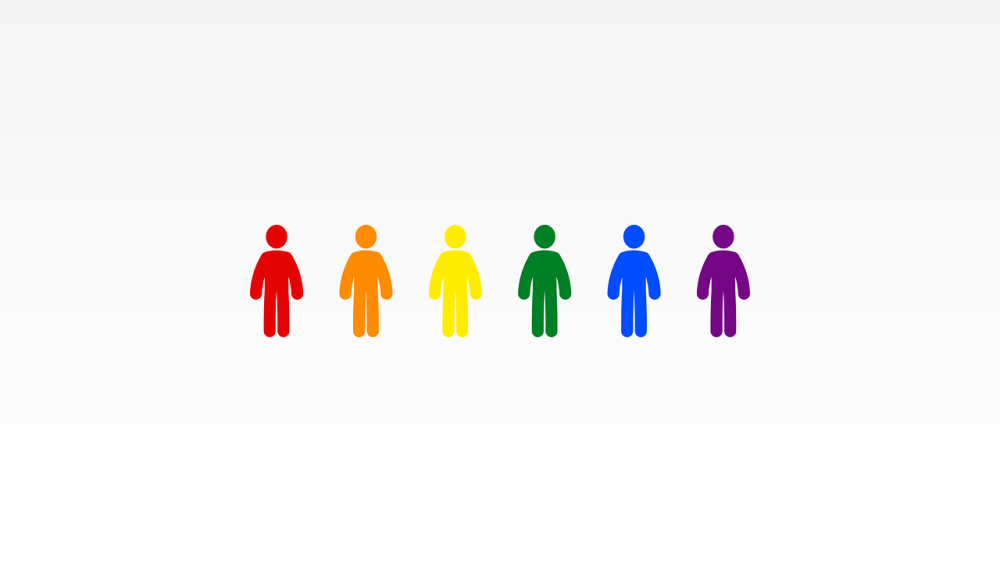
What is sexual orientation?
What is sexual orientation?
Sexual orientation refers to a deep emotional and/or sexual attraction to other individuals, as well as the personal and sexual relationships one develops with those individuals.
What is gender identity?
Gender identity refers to the individual and internal way in which a person experiences their social gender and may or may not align with the gender assigned to them at birth. It is recognized that prejudice, stigma, violence, and discrimination affect the health and well-being of LGBTQI individuals. The impact of institutional challenges on the lives of LGBTQI individuals has been identified, and efforts are targeted at developing positive conditions for these individuals. It is understood that mental health issues may or may not be related to sexual orientation and/or gender identity, and the psychological effects of stress experienced by LGBTQI individuals as a minority group are clear. Mental health professionals need to be adequately trained in psychology to work effectively with LGBTQI individuals.
SEXUAL ORIENTATION
Sexual orientation (homosexual or bisexual) is not a mental illness, and attempts to change it have been proven to be neither effective nor safe. Specifically, efforts to change it may cause significant harm and are not scientifically valid. Moreover, concerning mental health in general, it is explicitly stated that homosexual sexual orientation does not need to change. As a mental health professional, I understand the impact of stigma (prejudice, discrimination, and violence) and the various manifestations of stress on the lives of lesbians, gay, and bisexual individuals. As a mental health professional, I encourage increasing knowledge and understanding of homosexuality and bisexuality through ongoing education, training, supervision, and counseling. As a mental health professional, I acknowledge that the attitudes and knowledge of mental health professionals about issues affecting lesbians, gays, and bisexual individuals may influence the assessment and services they provide, as well as the need for supervision or appropriate referrals when necessary.
GENDER IDENTITY
Transgender identity does not imply any deficiency in judgment, stability, reliability, or general social and professional abilities. Gender is a non-binary construct that allows a range of gender identities, and a person's gender identity may not agree with the gender assigned at birth. Discrimination and lack of equality against transgender and gender-diverse individuals are destructive to their mental health. Mental health professionals hold a fundamental and weighty responsibility to promote social change that reduces the negative impacts of stigma on the mental health and well-being of transgender individuals and advocates for their rights, taking a public stance against discrimination and lack of equality. Mental health professionals are aware of how their attitudes and knowledge about identity and gender expression can affect the quality of services for transgender individuals and their families. Mental health professionals are committed to understanding the experiences and challenges faced by LGBTQI parents. Mental health professionals recognize that parenting and family formation in LGBTQI individuals may take many forms, and non-biological family structures can provide important social bonds and a familial framework often more significant for individuals than their biological family. Such family structures can reduce the consequences of stigma and the absence of institutional or legal recognition.
LGBTQI+ FAMILIES
International mental health organizations, as well as the American Academy of Pediatrics, support the legal recognition of the rights of same-sex couples in marriage, parenting, co-parenting, and joint adoption or child custody. Additionally, according to international research data on children raised by same-sex parents, there is no difference in their psychosocial adjustment and mental health compared to children raised by heterosexual parents. Mental health professionals are obligated to recognize and respect the significance of relationships for LGBTQI+ individuals. Mental health professionals seek to understand the experiences and challenges faced by LGBTQI+ parents. Mental health professionals must understand that parenting and family formation in LGBTQI+ individuals can take various forms. For many LGBTQI+ individuals, a close network of friends may constitute a different family structure, not based on biological or legally recognized relationships. Such chosen families provide social bonds and a familial framework often more meaningful for individuals than their biological families. These kinds of family structures can reduce the consequences of stigma and the absence of institutional or legal recognition.
Back